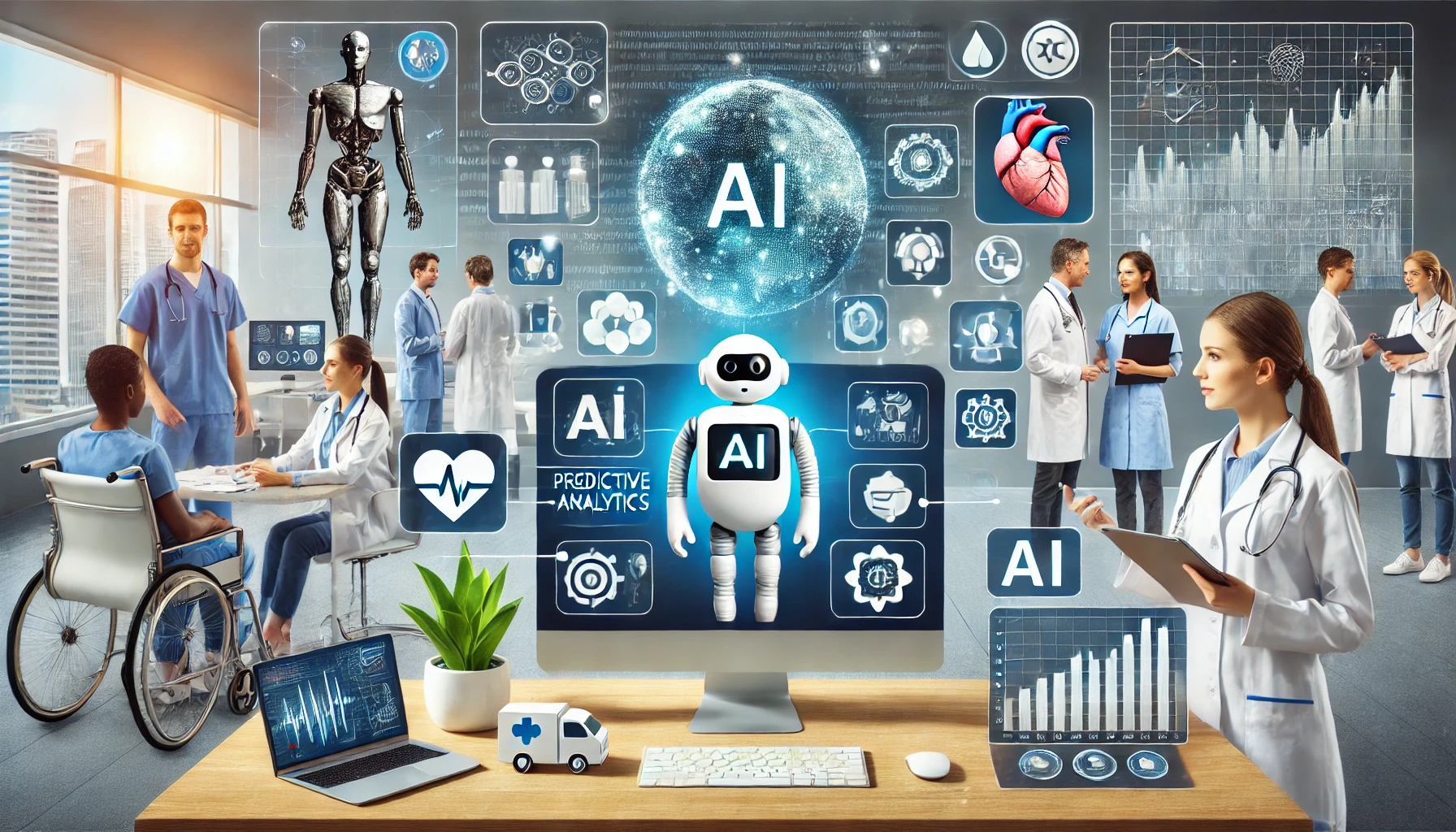Artificial Intelligence: A Revolutionary Transformation for Small and Medium Healthcare Enterprises

In the dynamic healthcare landscape, artificial intelligence (AI) is emerging as an extraordinary technological catalyst, offering small and medium enterprises unprecedented opportunities for optimization and innovation. AI adoption is no longer limited to large organizations; it has become a strategic necessity to enhance the quality of care and operational efficiency.
The Transformative Impact of Artificial Intelligence in Healthcare
Machine learning and AI technologies today represent much more than a passing trend. They constitute a genuine operational revolution for small healthcare organizations. AI enables healthcare professionals to save time, improve the precision of care, and deliver faster, more personalized services.
Key Practical Applications
1. Automation of Clinical Processes
AI-driven automation helps healthcare businesses to:
- Significantly reduce repetitive administrative tasks: Appointment management, medical data entry, and prescription follow-ups are automated, freeing staff from time-consuming activities.
- Optimize human resource allocation: AI assists in staff scheduling, accounting for peak periods and potential emergencies to ensure better coverage.
- Minimize risks of manual errors: Automation improves data quality, reducing mistakes associated with human input.
By integrating intelligent systems for hospital management, healthcare facilities can streamline operations and focus on their primary mission: patient care. For those seeking to modernize operational management, explore our AI automation solutions tailored to healthcare needs.
2. Conversational Agents and Virtual Assistants
AI-powered chatbots and virtual assistants transform patient-provider relationships by offering:
- 24/7 support: Patients can access crucial information and ask questions at any time, even outside business hours.
- Instant responses to common queries: Virtual assistants manage frequent requests such as appointment scheduling or treatment information without human intervention.
- Prequalification of appointment requests: Chatbots can sort requests, guide patients to appropriate services, and reduce consultation processing times.
- Efficient patient record management: Virtual assistants streamline updates and organization of medical information, ensuring its availability for healthcare staff.
For concrete applications and recommendations, consult our article on the revolution of intelligent assistants in healthcare.
3. Advanced Analytics and Predictions
AI technologies enable healthcare facilities to:
- Anticipate medical needs: Predictive analysis identifies trends, such as seasonal epidemics, allowing organizations to prepare accordingly.
- Optimize inventory management: AI predicts demand for medical supplies, reducing costs and waste.
- Plan resources with unmatched precision: AI algorithms analyze vast data sets to create staffing schedules that maximize efficiency while minimizing employee stress.
Future Prospects for Generative AI in Healthcare
1. Automated Decision-Making
Automated decision-making offers stunning possibilities:
- Faster and more accurate diagnostics: AI diagnostic tools analyze millions of data points in record time, helping doctors make more precise diagnoses and optimized treatment plans.
- Personalized care pathways: AI creates tailored care plans based on a patient’s medical history and best practices, enhancing the quality of care.
- Operational cost reduction: Automation reduces costs linked to repetitive tasks and medical errors while improving resource allocation.
2. Technological Innovations
Recent advancements in generative AI hint at major transformations:
- Continuous learning systems: These systems adapt to new data and improve their performance over time, offering increasingly efficient solutions.
- Ultra-personalized patient-provider interfaces: AI solutions tailor patient experiences to their specific needs and preferences, making interactions smoother and more intuitive.
- Intelligent treatment protocols: AI can design dynamic treatment protocols that adjust based on patient progress and new medical discoveries.
Implementation Strategies for Small Organizations
1. Gradual Approach
AI integration should be:
- Step-by-step: Start with simple solutions, such as appointment management or automated responses to common questions, to evaluate the impact before scaling up to more complex applications
- Adapted to specific needs: Each organization is unique. It is essential to personalize implementation according to specific requirements and business objectives.
- Focused on patients’ actual needs: Implementation should always aim to improve patient experience and care quality.
2. Investment and Training
Success relies on:
- Targeted technological investments: Invest in solutions that directly address needs and offer tangible returns on investment.
- Continuous team training: Employees must be trained to use new technologies effectively. Successful adoption depends on staff engagement.
- A culture of open innovation: Encourage experimentation and initiative to integrate AI into all aspects of the organization.
Conclusion: A Promising Horizon
Artificial intelligence is no longer a futuristic technology but a concrete transformation lever for healthcare enterprises. By adopting these innovative solutions, small and medium organizations can not only improve care quality but also optimize operations, reduce costs, and provide more accessible and personalized services to their patients.
To learn more about solutions tailored to healthcare needs, visit the CK Digital website, where we showcase innovative options to optimize your services and infrastructure. If you’re ready to transform your organization and address current industry challenges, contact us to discover how we can assist you.